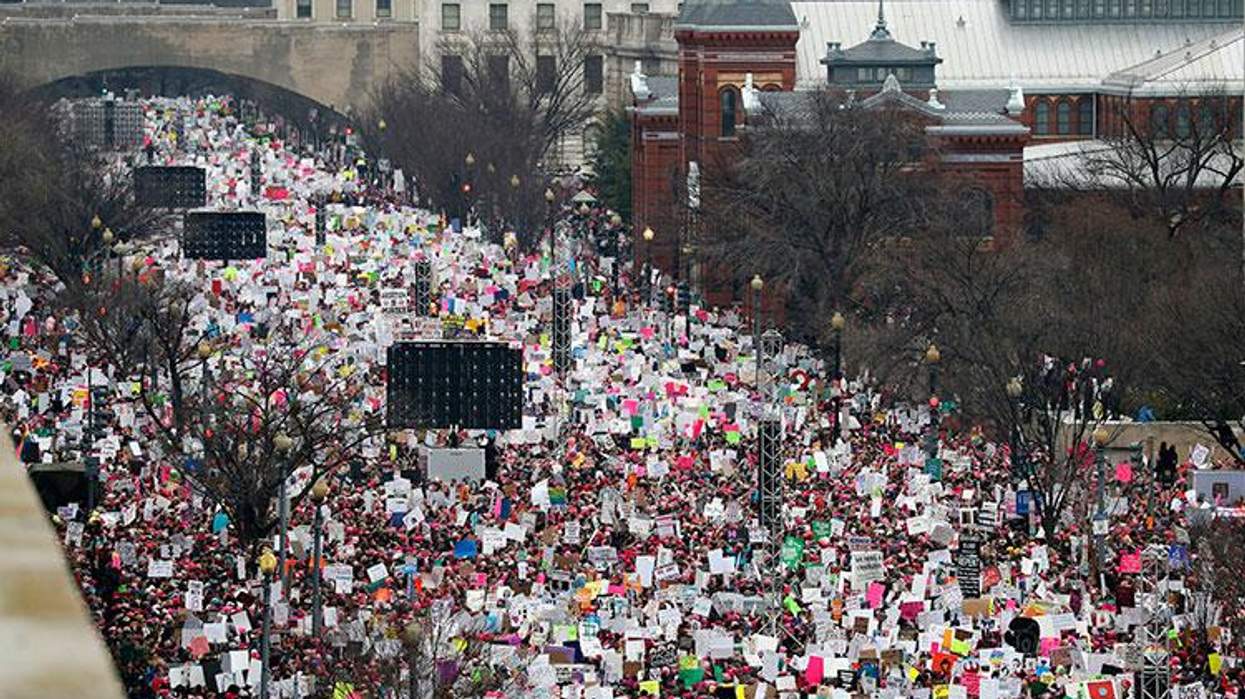At Donald Trump's joint address to Congress Tuesday, dozens of Democratic female lawmakers wore white pantsuits in solidarity with the suffragette movement, an idea that took off when Hillary Clinton donned a white pantsuit to deliver her speech at the Democratic National Convention last July. Clinton wore a different white suit for her final debate with Trump, and by Election Day #WearWhiteToVote was trending. While Democratic lawmakers wearing white was a rather genius move to troll "I grab them by the pussy" without consent Trump by reminding him of the "nasty woman" he faced off with during the election and also sending a message that he is always on the hook for his lewd, hateful behavior toward women.
While the use of semiotics is helpful in telegraphing solidarity (it sure got under the skin of Republican Rep. Kevin Cramer of North Dakota, who said the women were "poorly dressed" in "bad-looking white pantsuits"), it can also send the wrong message. The white women of means who primarily made up the suffragette movement in the early 1900s often, at best, ignored the needs of women of color and, at worst, were flat-out racist. So embracing the symbol of that movement -- the color white -- will not be a part of A Day Without a Woman next Wednesday, March 8. The organizers of the wildly successful Women's March that grew to hundreds of marches around the world in honor of women and in protest of Trump, are encouraging women to wear red on the 8th in solidarity with the strike, according to the official website.
The organizers don't address the reasoning behind the call to action to wear red on the day of the strike, but considering the unity principles laid out on the site prior to the Women's March, eschewing white to stand in solidarity with all women seems akin to the mission.
"We must create a society in which women -- including Black women, Native women, poor women, immigrant women, disabled women, Muslim women, lesbian queer and trans women -- are free and able to care for and nurture their families, however they are formed, in safe and healthy environments free from structural impediments," read the unity principles outlined by the Women's March organizers.
Wearing red is one way in which women can participate in the strike that is slated for International Women's Day and is part of the International Women's Strike. Other ways to become involved include taking time off from paid or unpaid labor, and to avoid shopping for the day except at small women- or minority-owned businesses.
A Day Without a Woman is part of several actions organized by women in more 30 countries around the world, and in the United States, the strike is intended as a protest against Trump and more.
"March 8th will be the beginning of a new international feminist movement that organizes resistance not just against Trump and his misogynist policies, but also against the conditions that produced Trump, namely the decades-long economic inequality, racial and sexual violence, and imperial wars abroad," according to a statement on the International Women's Strike USA.
The organizers of the Women's March write that the upcoming protest will not only address issues associated with pay inequality, discrimination, and sexual harassment but is also focused on highlighting the inequities trans and gender nonconforming people face including "discrimination, social oppression, and political targeting."
"We believe in gender justice," the organizers wrote about its mission.





































































Charlie Kirk DID say stoning gay people was the 'perfect law' — and these other heinous quotes